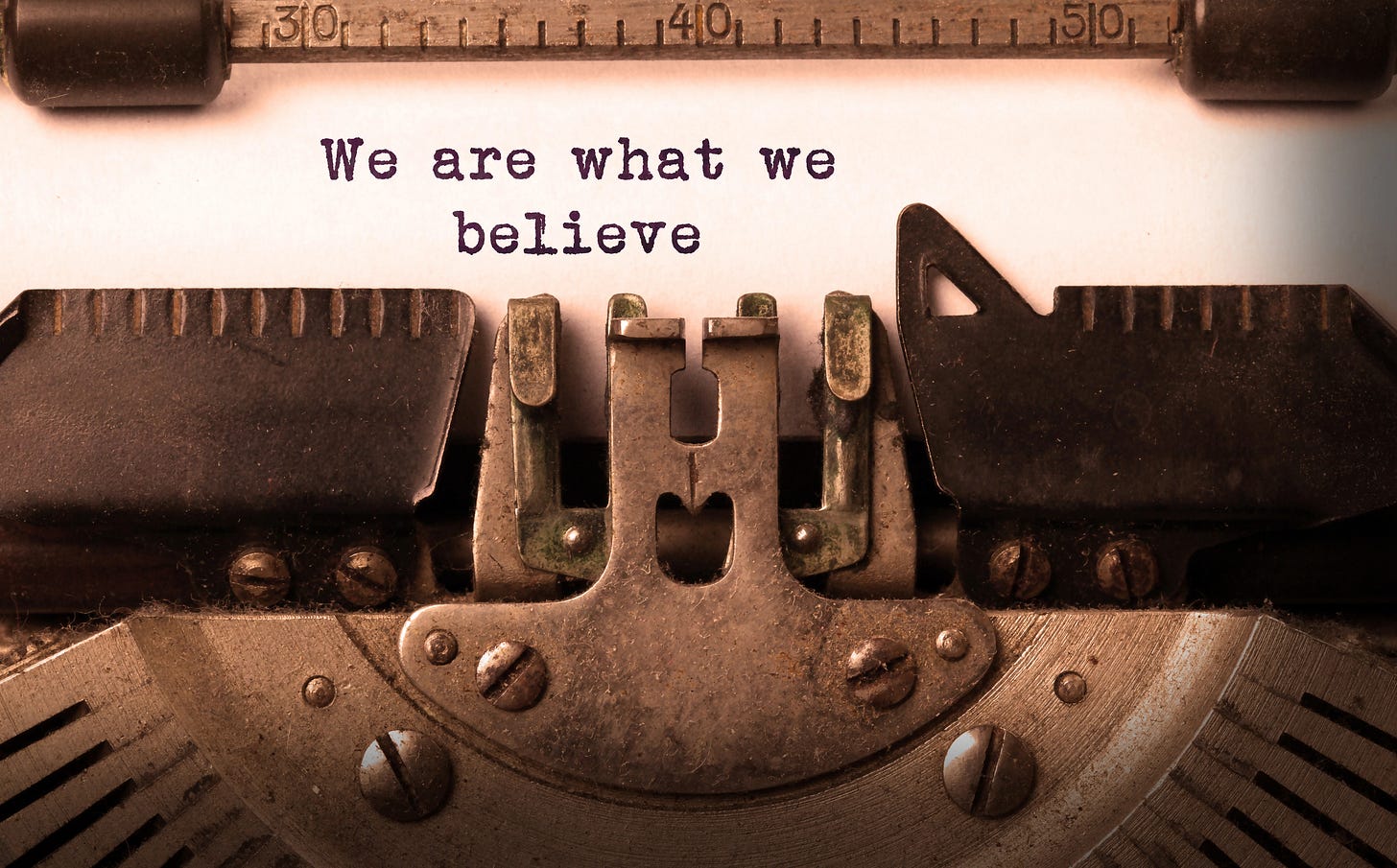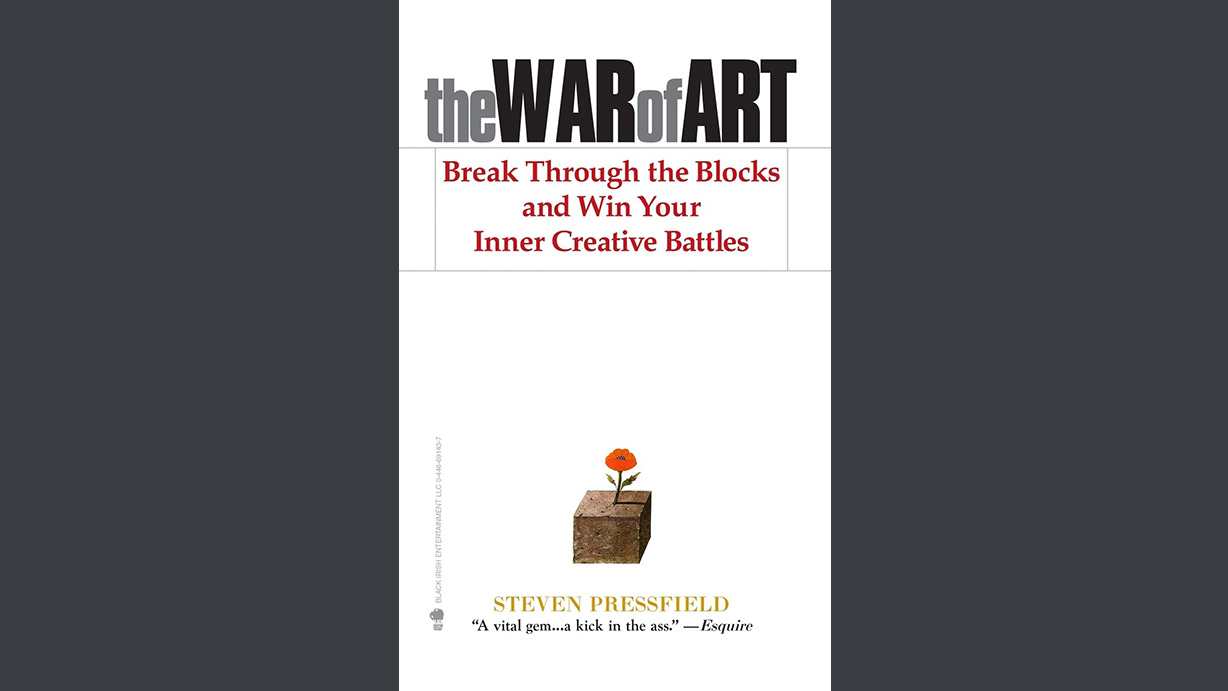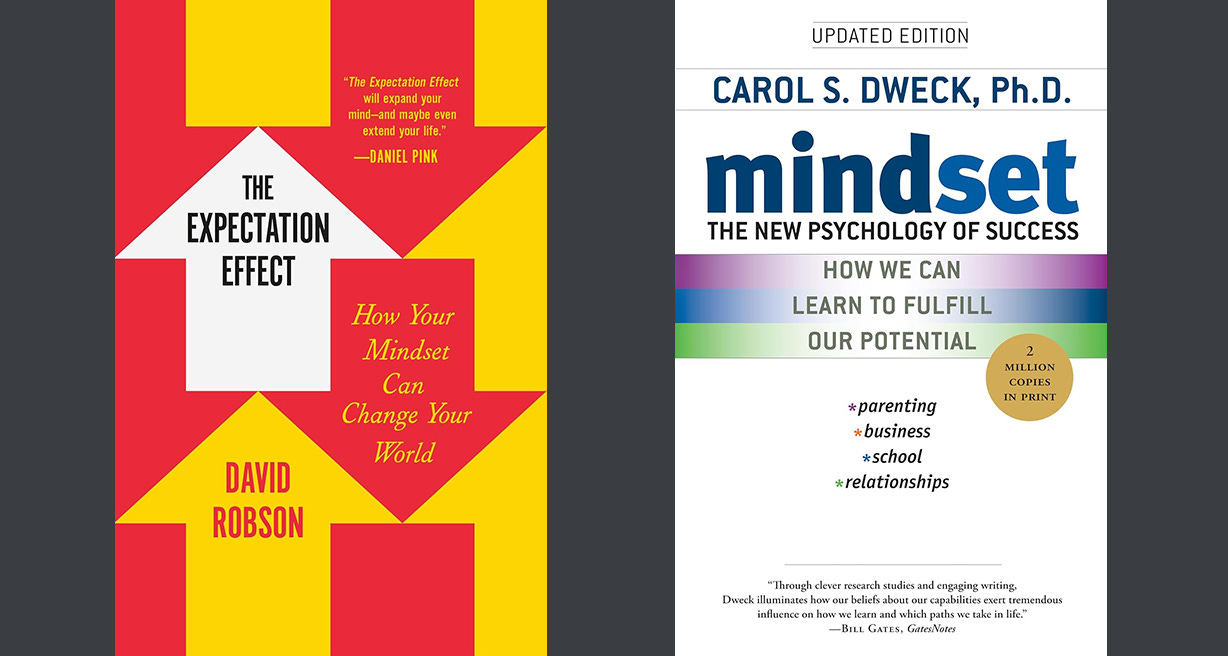A Writer's Secret Weapon: Harnessing the Expectation Effect
Cultivating the Writer's Mindset Part I: Small Steps, Big Changes

It seems like everyone is searching for a shortcut. Including writers. For some, it’s the idea that if we research just a little more, we’ll uncover the answer, the stars will align, and we’ll finally be ready! For others, it’s focusing on hacks that ensure we’ll be household names by the end of the month.
Well, look no further, my friend.
Here it is, the ultimate hack for writing a kick-ass novel or comic: actually write it.
Spoiler alert: This is both the cheat code and the boss fight!
Writing, editing, publishing, and promoting… it’s all easy. At least, that’s what it seems like. Everyone on social media is proving how easy it is to write books and sell them, right?
Unfortunately, for some of us, one or more of those stages can be hard as hell.
But it doesn’t have to be that way.
If I’ve learned anything from working with writers for the last 25+ years, it’s that our thoughts are what keep us from our writing goals. And for those who have found a way to forge through the pain and succeed anyway, our thoughts are what keep us from finding harmony on our creative journey.
The negative self-talk, those quiet but merciless limiting beliefs we’ve been whispering to ourselves, are like a warm blanket that makes us feel safe but keeps us from the life we truly want.
These hidden thoughts might manifest as procrastination, perfectionism, or imposter syndrome. Or you might get stuck comparing yourself to others, searching for “the answer,” or wasting time learning instead of actually writing, publishing, and promoting.
After years of research and practice, I’ve become adept at spotting how my thoughts and beliefs impact my life (just a couple of weeks ago, I discovered a new limiting belief while writing my latest Kickstarter retrospective).
By first listening in and then changing how I talk to myself, I’ve managed to:
Quit my corporate job.
Build a successful editing business.
Overcome a herniated disc the doctor said would never improve without surgery.
Start writing and promoting this Substack.
Launch two new Kickstarters, this time for my fiction.
Over the years, I've developed a process that has profoundly impacted my life and my writing, helping me recognize the thoughts that shape my actions and adapt them to better serve my goals.
I’m not a millionaire. I haven’t written so many successful novels that I’m a household name. But I am happier and more confident with myself and my writing than I’ve ever been. By learning to address the thoughts and beliefs I have, I’m exactly where I want to be.
I’ve detailed this process in my upcoming book, Cultivating the Writer’s Mindset, an exploration of first discovering my core beliefs and then either changing them or accepting them. It’s not always “how do I stop thinking this way.” Sometimes it’s, “How can I work best with the thoughts and beliefs I have?”
In the coming weeks, I'll be sharing key concepts from my process right here on The Fiction Coach Substack.
An underlying theme to my goals for the year is to help more novelists and comic writers craft kick-ass stories that sell. Helping you craft a winning mindset is part of that process.
Each post will offer a look at the transformative insights I've discovered and guide you toward understanding and evolving your mental landscape. I hope they’ll equip you with thought-provoking ideas and practical steps to start the change within you, which will help you find a little harmony with your writing.
First, let’s establish a few key concepts…
You are the Resistance
In his book The War of Art, Steven Pressfield provides insight into all the ways writers deal with resistance, that powerful force that sabotages our creativity and the need to actually do the work.
Pressfield emphasizes the importance of consistency and discipline in the creative process. He encourages artists, writers, and entrepreneurs to show up and do their work every day, regardless of their feelings or circumstances.
Pressfield’s insight is so much more nuanced than the distilled “just write” advice. There’s more to it than just forging ahead, especially for those who lack the confidence or experience to get the job done consistently.
The first step is realizing and accepting that you are the resistance.
Your thoughts. Your beliefs. Your actions. It’s all you. You are why you’re struggling. You are why you’re failing to reach the life you’re searching for.
It’s not your job, spouse, or kids. It’s not your lack of knowledge or skill. It’s those comfortable lies you keep telling yourself, especially those you don’t even know are driving your actions.
Cultivating a successful writer’s mindset starts with understanding your thoughts, questioning them, and then changing those that no longer serve you.
Don’t get me wrong, you still have to do the work. Your book won’t write itself—and if writing consistently isn’t the problem, your books won’t promote themselves, either. But your creative life can be a harmonious one if you’re willing to examine your beliefs, ask if they’re serving you, and challenge the ones that no longer fit the person you want to be.
Understanding the Expectation Effect
In his book, The Expectation Effect, science writer David Robson argues that your beliefs and predictions about your body, health, intelligence, and emotions are so powerful that they create your reality. By changing your beliefs and what your brain predicts will happen, you can change the reality your brain creates for you and the limits that it sets.
In other words, people who believe they can do a thing are more likely to succeed.
Henry Ford summed it up perfectly when he said:
“Whether you think you can, or you think you can’t, you’re right.”
“People who believe they can change and get better are the ones who tend to change and get better,” said Carol S Dweck, Ph.D., author of Mindset: The New Psychology of Success.
In her book, Dweck compares fixed mindsets with growth mindsets.
Fixed mindset — If you believe writing is hard, that you’re a struggling writer, or that you’re not good enough, all those things become your truth. If you believe that the number of readers and 5-star reviews are the only indicators of your success, you’re likely to deem yourself a failure when you don’t immediately achieve those goals.
Growth mindset — If you believe you can improve as a writer and you see failures as a chance to grow and learn, you’re more likely to stick with it, seek mentors, and eventually become a better writer.
If the thoughts and beliefs we hold about ourselves are so powerful, we might as well adopt beliefs that benefit us.
To get there, we must first get to know our self-concept.
What is Your Self-Concept?
Put simply, your self-concept is everything you believe to be true about yourself.
Throughout your life, your beliefs have led to your thoughts, which led to the words you spoke and the actions you’ve taken. And those thoughts, words, and actions have led you here, wanting to be a better or more successful writer and to calm the disquiet in your mind.
Whatever “better” might mean to you—whether it’s a routine that allows the words to flow freely, a writing style that naturally captivates your audience, or a platform that pulls in more readers with ease—the beliefs about yourself have led you to the point where you want something more.
Who you are today is like a set of programs. You are what your parents taught you, what your institutions taught you, and what your experiences taught you. The disappointments from your past have also taught you how to adapt and hide.
Your thoughts and core beliefs are the only thing standing in your way. If you disagree, that in itself is a limiting belief.
Underneath the struggle to make it as a writer, buried under the unfinished projects, obscured by the need to make your story perfect before you share it with the world, beneath all of that are your beliefs about what a writer is, and beliefs about yourself as a writer and as a human being.
This is your self-concept. Your identity. Even if you’ve never expressed it succinctly to yourself or others, this is who you see yourself to be.
I am a comic writer.
I am a fiction writer who can’t write fast enough.
I’m not a very good writer.
I’m a struggling writer who’ll never succeed.
Those are the ideas that form your self-concept.
But here’s the thing: beliefs are nothing more than thoughts we continue to think... thoughts we continue to believe are true even if we’ve never examined their validity.
You can’t control your first thought, but you can control your second. And if you can change your thoughts, you can change those hidden beliefs. Or, once you realize what they are, you can choose to accept them and work with them.
If you think you’re a successful writer, and if you learn to believe it, you have taken the first step to being a successful writer.
I know, I know. That sounds a lot like manifestation and the power of attraction, that new-age practice that claims that if you think about something hard enough, that thing will miraculously appear.
Lonely? Just believe you’re already with the person you’ve always dreamed of, and your partner will appear.
Broke? Just believe you're rich, and money will find its way to you.
But the expectation effect isn’t that. Not exactly. I actually believe we can manifest our desired life. I’m doing it right now by sharing these insights with you.
Unfortunately, most manifestation gurus ignore the important details—such as the need to act. Right thoughts lead to right actions, but you can’t get there by daydreaming on the couch.
Just to be clear, I’m not suggesting the toxic positivity where you slap on a smile no matter what happens. I’m not suggesting unmerited optimism in the face of hardships.
I’m also not suggesting that telling yourself you’re a successful writer will instantly turn you into one.
But it’s a start.
It’s about training your mind to expect better things, which in turn leads you to see things as getting better, which then makes those things more likely to grow more frequent.
If what you expect to happen can shape what does happen, you might as well adopt mindsets and beliefs that help you. That’s leveraging the expectation effect.
Over the next few weeks, I’ll provide insight for modifying how you talk to yourself. But first, we need to set a strong foundation…
Weekly Exercises
With each Cultivating the Writer’s Mindset post, I’ll include one or more exercises you can perform throughout the week to help you develop a winning mindset.
This week, let’s begin with some foundational considerations. As you read through these exercises—or as you try to implement them into your daily practice—see if you can capture the thoughts and emotions you’re experiencing. What sort of pushback are you feeling? Starting to recognize your thoughts and emotions is key to this process, even if it can get a little uncomfortable.
Give Yourself a Little Grace
I’ve always been pretty good about holding space for friends. Listening and providing the support they need to help them get unstuck. At least, that’s been my intent.
But then, in the quiet of my own mind, I’d turn around and subconsciously berate myself for not being perfect.
Over the last few years, however, I’ve learned to accept myself as a flawed human being. To forgive myself more. To give myself the grace I’d give a friend.
During that same time, I kept reflecting on a quote my mom had hanging on our wall when I was growing up:
Today is the first day of the rest of your life.
It encourages us to view each day as an opportunity to make positive changes and embrace new possibilities.
So this week, I suggest you repeat that phrase to yourself. You might not be the writer you want to be yet, and that’s okay. Instead of secretly berating yourself for that, instead of constantly looking for all the ways you’re not enough, take a deep breath, and forgive the person who got you here.
I’ll admit this took me forever. I still fall into the trap of negative self-talk and forget to handle myself with kid gloves sometimes.
It’s not a snap your fingers or say abracadabra sort of thing. It takes practice, but it’s an invaluable step.
So don’t expect to leave your baggage at the door just because you want to. Instead, understand that falling isn’t failing. It’s just being human. Pick yourself up, dust yourself off, and try again.
Be aware, however, that this isn’t an invitation to slack off. It’s not a, “Oh, James said I need to give myself a little grace, so I’m taking today off again.”
No, you can forgive the old you while also taking action. You can treat yourself with kindness while still putting in the work.
In fact, it’s imperative that you do so.
It just takes a little…
Discipline
I’ve worked with many writers who’ve said, “I’ll write tonight.” Then when I check in the next day, they list all the reasons why they didn’t.
To get to the mindset of a successful writer, you must learn to exercise control over yourself. Prime the ego to take commands.
It’s time to start following through with the promises you make yourself. The more trust between mind and body, the more in harmony you’ll be and the more control you establish over your ego.
The mind is used to getting away with promises it never intends to keep. Doesn’t matter if it’s promising to brush your teeth, call your mom, or eat a salad... don’t say you’ll do it unless you intend to.
To help do what you say you will, learn to set yourself up for success. For example, take a moment after each writing session to prepare your writing station so it’s ready when you sit down tomorrow. Or learn to set boundaries with your loved ones.
But if you promise to do a thing, do it, no matter how challenging it is. Send a signal to the body and mind that you’re in charge. If you say you’re going to the gym, go to the gym, even if it’s for a short time. If you say you’re eating a healthy snack this afternoon, do it. Say you’ll write? Then go write. Even if it’s for only a few minutes and every word is worse than the one before it.
In a video game, you play an avatar.
In this case, you are the avatar.
It’s time to build that trust and make your word the law.
I can delve deeper into discipline in a future post if it’s something you need help with, but for now, simply practice following through with the things you say you’ll do.
And to do that, I suggest you…
Start Small
No matter what your goals are for the new year, I suggest you start small.
I encounter too many writers who give themselves huge, lofty goals:
They’ve never written consistently, but they tell themselves they’ll write and publish three novels this year.
Having never launched a Kickstarter campaign, they set a goal for one every quarter.
Comic writers who haven’t written a short script set out to write a 100-issue series.
Don’t do that.
Instead, start small:
If you’re struggling with consistency, write 15 minutes a day. In fact, to set the habit, make it just one minute and after a few days/weeks, grow from there.
Consider writing a short story or two first.
If you’re already writing but want to increase your reach, research podcasts you might be on, and then set out to email one of them every week.
If you’ve never told anyone you write fiction, share one social media post about the book you’re working on or the one you published in secret last year.
The key is setting achievable goals. Seeing results, even small ones, motivates you to keep going. And the more often you do a thing, the more likely it’ll transform into a habit.
Journal Prompt
With each Cultivating the Writer’s Mindset post, I’ll provide a simple statement. Each statement will elicit a thought or emotion. After reading it, take 5-10 minutes to journal about the thoughts and emotions that come to you. If journaling isn’t your thing, then at least sit with your thoughts for a moment. Ask yourself why you reacted the way you did.
Today’s prompt:
Writing well is not a trait you’re born with—it’s a skill anyone can develop.
Up Next
Coming up next, I share the power behind the concept I am...
If you found this post valuable, please share it with others.
If you’re not a subscriber, you can get these insights delivered to your email by entering your email address below.





This one hit home. Great post, James. Some really helpful reminders here.
I really needed to read this so thank you, James. I'm going to try and come back to this periodically to keep it fresh in my mind.
:)